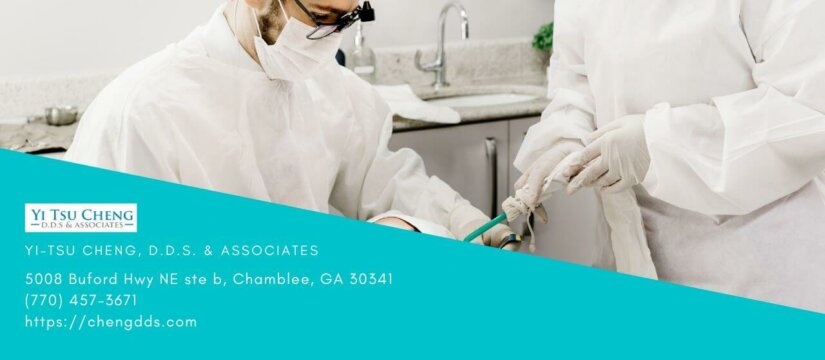
Tooth extractions are common dental procedures, but they can come with complications, one of which is a gum infection. After tooth extraction, it’s important to monitor your gum for signs of infection, which can lead to severe complications like an abscess. In this article, we’ll discuss how to identify a gum infection after a tooth extraction and ways to prevent it.
Signs of Gum Infection
Here are some of the signs that your gum may be infected after a tooth extraction:
1. Pain: A dull, throbbing pain in the extraction area that doesn’t seem to improve or gets worse after a few days.
2. Swelling: An increase in swelling or redness in the extraction area, which can be a sign of an infection.
3. Bad Breath: A foul smell emanating from the extraction site, even after proper oral hygiene, can indicate an infection.
4. Fever: A low-grade fever, especially after a few days of the extraction, is a sign that an infection is brewing.
If you notice any of these symptoms, contact your dentist immediately. Prompt treatment can prevent the infection from spreading to other parts of the body.
Ways to Prevent Gum Infection After Tooth Extraction
1. Follow postoperative instructions: Your dentist will give you specific postoperative instructions to follow after a tooth extraction. These instructions usually include keeping the extraction site clean, eating soft foods for a few days, and avoiding smoking or sucking through a straw.
2. Practice good oral hygiene: Brush your teeth twice a day and floss once a day, even if you have a sensitive extraction area. Keeping your mouth clean is essential to prevent infection.
3. Avoid irritating the extraction site: Don’t poke or prod the extraction site with your tongue, fingers, or any other object. It slows down the healing process and exposes the area to potential infection.
4. Eat nutritious foods: Incorporate foods rich in vitamins and minerals in your diet, such as fruits and vegetables. They help boost your immune system, which fights off infections.
FAQs
Q. What should I do if I have a gum infection after a tooth extraction?
A. Contact your dentist immediately. They will prescribe antibiotics or other medications to treat the infection.
Q. How long after a tooth extraction can I eat solid foods?
A. Stick to soft foods for the first 24 hours, then gradually introduce solid foods as your extraction site begins to heal.
Q. Can a gum infection from a tooth extraction spread to other parts of the body?
A. Yes, a gum infection can spread to other parts of the body if left untreated. It’s essential to contact your dentist immediately if you experience any symptoms of infection.
Conclusion
Gum infection after a tooth extraction is a preventable complication if you follow your dentist’s postoperative instructions and maintain proper oral hygiene. If you experience any signs of infection, contact your dentist immediately. Remember to eat nutritious foods, avoid irritating the extraction site, and practice good oral hygiene to reduce the risk of infection. By taking these steps, you can have a smooth recovery after a tooth extraction.
DISCLAIMER: The advice offered is intended to be informational only and generic. It does not offer a definitive diagnosis or specific treatment recommendations for your situation. Any advice provided is no substitute for proper evaluation and care by a qualified dentist.
